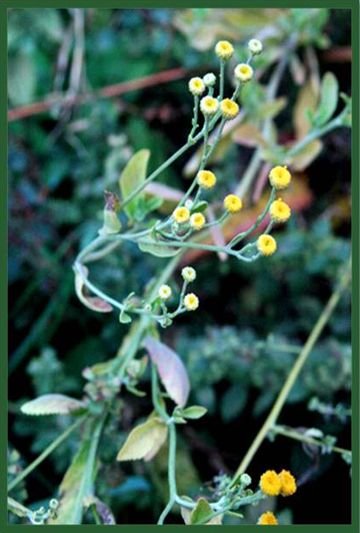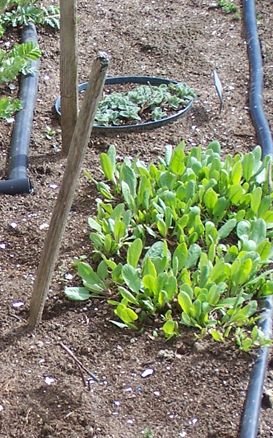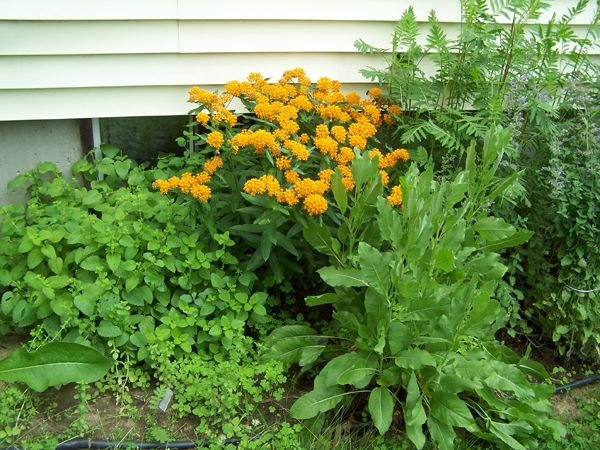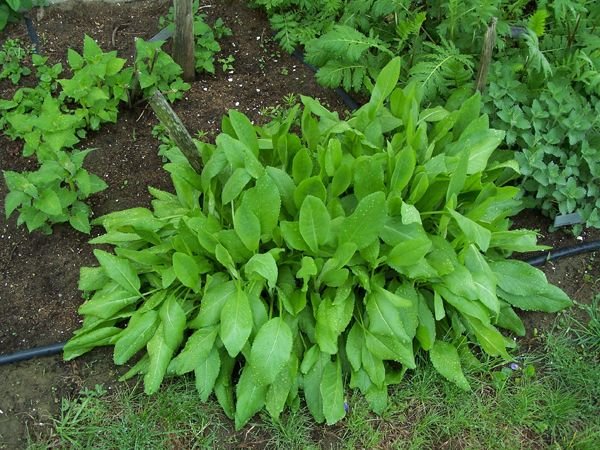
Chrysanthemum balsamita var. tanacetoides, also Balsamita major and Tanacetum balsamita, aka Costmary, Alecost, Bible leaf, is a hardy perennial herb from which you can use the leaves. It grows 2’ – 3½’ high and can be found in light woods, and roadsides. Zone 4 – 8.

This was planted in the original herb garden in 1992. It has stayed in this one place, never found anywhere else on the farm. It is just coming up here in April 2005.

Here it is with lemon balm, back left, butterflyweed back of it, and tansy, back right in June 2015. It was planted because of the back story that the leaves were used as markers in the bible due to their pleasant scent.

June 2006 It is on the west side of the house so gets limited sun. When it does flower, rarely, it has small insignificant flowers. It is said that full sun will cause it to develop white rays around the pale yellow button heads. I will find out this year as I am growing it from seed to plant in the New Herb garden.

Flowers: small button heads, pale yellow, flowers July – September, in full sun buttons have white ray petals
Leaves: up to 12” long, spearmint scented, finely toothed, oval, pointed, light or silvery green, leaves clasp stem
Cultivation: full sun to moderate shade, prefers rich, dry, well drained soil. Divide roots spring or fall. The seed is not viable in cool areas. Plant 2’ apart. Can be grown indoors. Prune occasionally, can be invasive.
Harvest leaves anytime but the aroma is strongest when the plant flowers.
Medicinal: astringent, antiseptic, promotes menses, eases childbirth. Leaf is good for colds, cough, upset stomach and crushed and applied to bee stings.
Culinary: use the leaf in small amounts as it is very strong in carrot soup, salads, on game, in poultry stuffing and in butter on peas and potatoes. It is used in beer and ale making.
Other: repels insects, use the leaves in potpourri
References:
Complete Book of Herbs page 66
Encyclopedia of Herbs pages 359 – 360, 208
Herbs page 36, 195
Credits:
Flowers@Stanislav Doronenko
